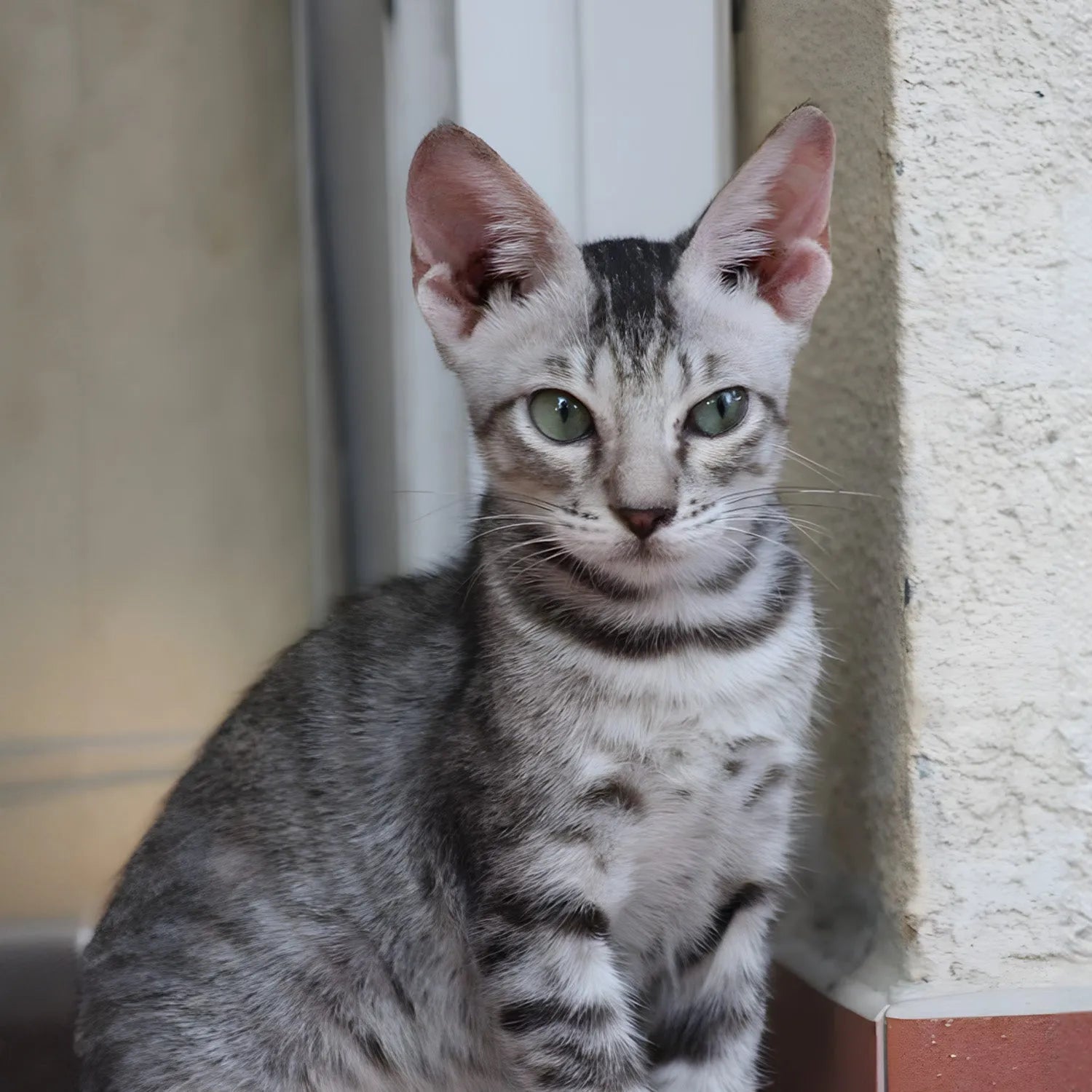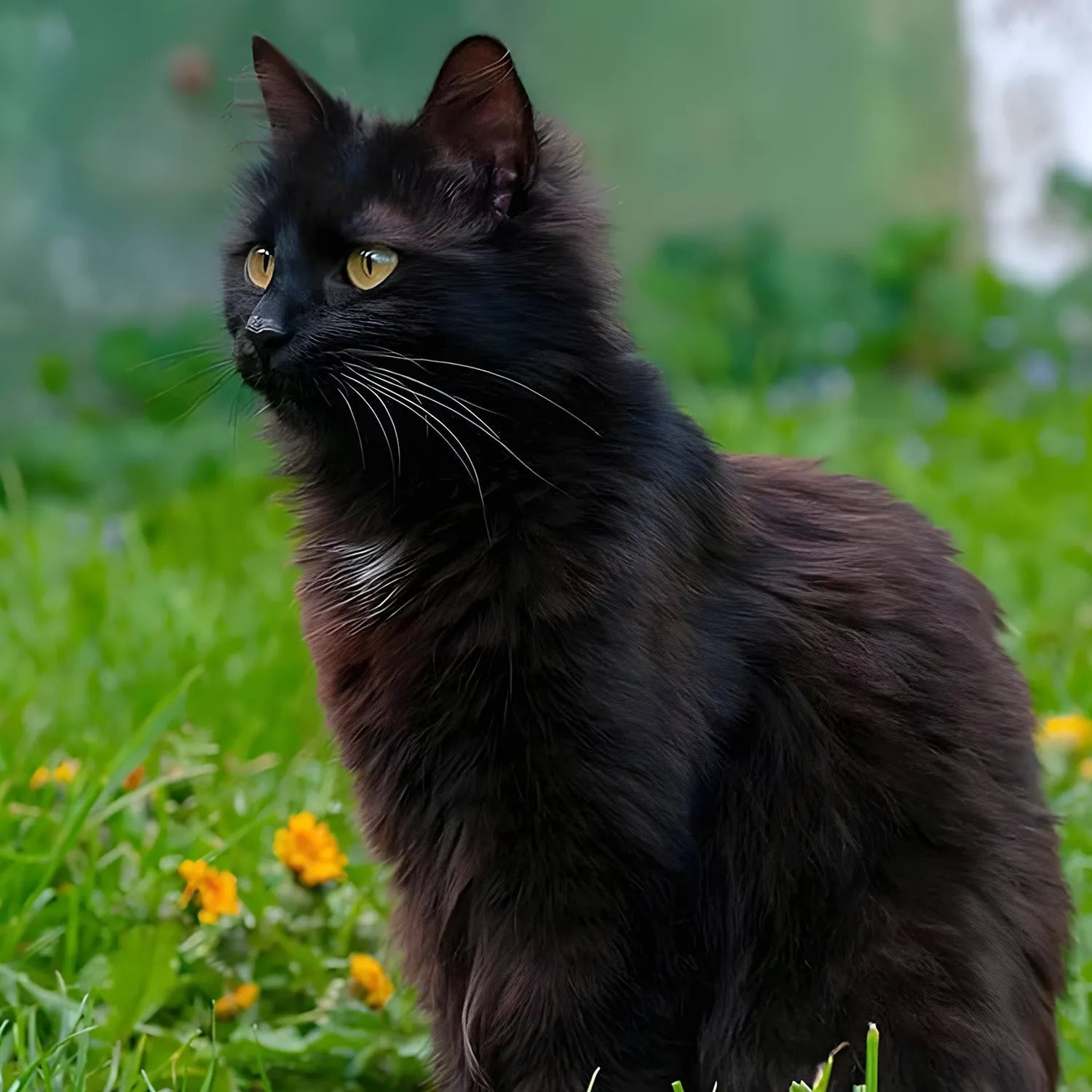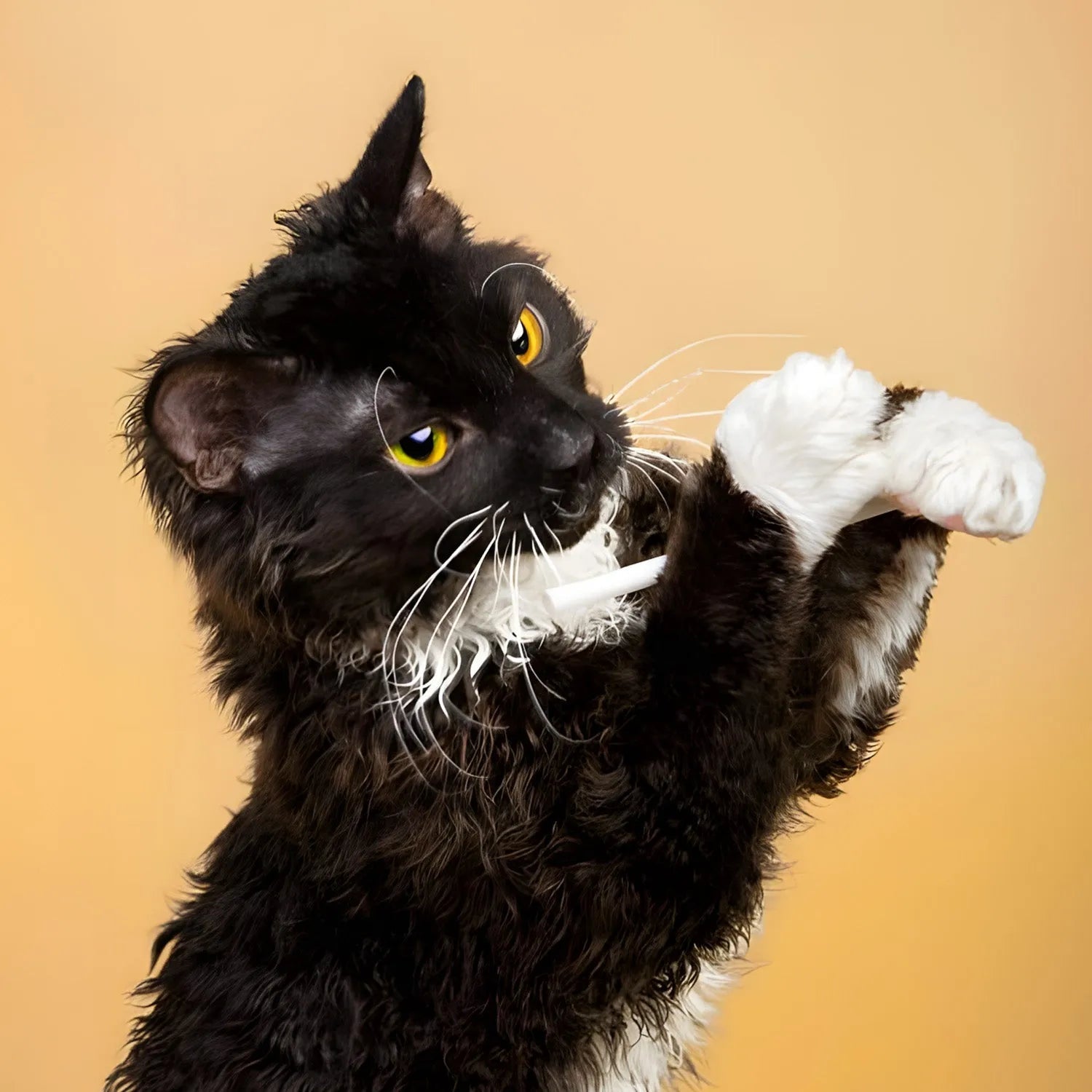Munchkin: The Playful and Compact Feline with Short Legs
Introduction
The Munchkin cat, instantly recognizable by its short legs, is a playful and energetic breed that loves to explore and engage with its surroundings. Known for its compact body and endless curiosity, the Munchkin is a delightful companion for families and individuals alike. Despite its short stature, this breed is agile and capable of running and jumping just like other cats. With their affectionate nature and quirky appearance, Munchkin cats have charmed their way into the hearts of cat lovers worldwide. In this blog, we’ll explore the Munchkin cat’s lifestyle, behavior, grooming needs, trainability, and how it interacts with humans and other pets.
Ratings (1-5)
-
Environmental Adaptability: 5
-
Food Consumption: 3
-
Need for Companionship: 5
-
Trainability: 4
-
Tolerance of Children: 5
-
Ease of Domestication: 5
History and Origins
The Munchkin cat’s distinctive short legs are the result of a natural genetic mutation, much like how dachshunds and corgis have short legs in the dog world. The breed was first noticed in the 1940s in Europe, but it wasn’t until the 1980s that Munchkins began to gain recognition as a breed in the United States. The first officially recognized Munchkin was a cat named "Blackberry," who was discovered by a breeder in Louisiana in 1983. By the early 1990s, Munchkins were recognized by various cat associations and became an official breed. Despite initial concerns about the health of these short-legged cats, Munchkins have proven to be healthy, active, and capable of living full, active lives.
Physical Characteristics and Colors
Munchkins are medium-sized cats with a well-muscled body, but the most obvious characteristic is their short legs, which are about half the length of a typical cat’s legs. Despite their short stature, Munchkins are surprisingly agile and have no trouble running or jumping. They have a wedge-shaped head, with large, round eyes that give them a curious, wide-eyed expression. Munchkin cats can come in both shorthaired and longhaired varieties, with coats that can be smooth, plush, or silky. Their coat colors and patterns are diverse, including solid, tabby, bicolor, tortoiseshell, and more. Their short legs do not affect their overall health or ability to enjoy an active life, making them both functional and adorable companions.
Lifestyle and Behavior
Munchkins are known for their playful, outgoing, and affectionate personalities. Despite their short legs, they are incredibly agile and love to explore their environment, often chasing after toys, climbing cat trees, and investigating new areas of the house. Munchkins are curious by nature and enjoy mental stimulation through interactive toys and puzzles. They are social cats that form strong bonds with their human families and often follow their owners around the house, eager to be part of the action. Munchkins are also known for their love of cuddling and will happily curl up in a lap for some quiet bonding time. Their playful and friendly demeanor makes them ideal companions for both individuals and families.
Trainability and Intelligence
Munchkin cats are intelligent and can be trained to follow commands, perform tricks, and even walk on a leash. They respond well to positive reinforcement techniques, such as treats and praise, and enjoy interactive toys that challenge their minds. Because Munchkins are naturally curious and playful, they are quick learners and often enjoy games that involve problem-solving, such as puzzle feeders or hide-and-seek with toys. Training sessions with Munchkin cats should be short and fun, as they have a short attention span and may lose interest in repetitive tasks. Their intelligence, combined with their playful nature, makes them easy to train and a joy to interact with.
Social Behavior and Human Interaction
Munchkins are social cats that thrive on human interaction and love being around people. They form deep bonds with their human families and are known for their loyalty and affectionate behavior. Munchkins are happiest when they can be close to their owners, often following them from room to room and seeking attention. They enjoy interactive play and will often engage in games with their humans, such as chasing after toys or pouncing on laser pointers. Munchkins are also known for their love of cuddling and will often seek out laps to curl up in for a nap. Their friendly and easygoing nature makes them wonderful companions for individuals or families who want a loving and interactive pet.
Compatibility with Children and Other Pets
Munchkin cats are excellent companions for children due to their playful and tolerant nature. They enjoy interactive play and are generally patient with children’s antics, provided they are treated with respect. Their small size and affectionate personality make them less intimidating to younger children, and they often form strong bonds with kids who enjoy playing with them. Additionally, Munchkins tend to get along well with other pets, including dogs, as long as they are properly introduced. Their sociable and adaptable nature allows them to integrate well into multi-pet households, and they often enjoy the company of other animals as much as they do humans.
Grooming and Care
The grooming needs of a Munchkin depend on whether they have a short or long coat. Shorthaired Munchkins require minimal grooming, with weekly brushing usually sufficient to remove loose hairs and keep their coat looking healthy. Longhaired Munchkins, on the other hand, require more frequent brushing—at least two to three times a week—to prevent tangles and mats. Regular dental care, ear cleaning, and nail trimming are also important to maintain their overall health. Despite their grooming needs, Munchkins enjoy the bonding time that grooming sessions provide, and it can be a great way to strengthen the bond between cat and owner.
Health and Lifespan
Munchkin cats are generally healthy and do not suffer from any major breed-specific health issues related to their short legs. However, as with all cats, regular veterinary check-ups and a balanced diet are essential to maintain their health. Some Munchkins may be prone to lordosis (a curvature of the spine), but this is relatively rare. With proper care, Munchkin cats can live up to 12-15 years or more. Regular monitoring and preventive care are important to ensure a long and healthy life for your Munchkin cat.
Environmental Adaptability
Munchkin cats are adaptable and can thrive in various living environments, whether in a small apartment or a larger home. They are particularly well-suited to indoor living, where they can enjoy a stimulating environment with plenty of interactive play. Despite their short legs, Munchkins are active and enjoy climbing and exploring their surroundings, so providing them with cat trees, shelves, and plenty of toys will help keep them entertained. Their adaptable nature makes them well-suited to a wide range of living conditions, but they thrive best in homes where they can receive plenty of attention and interaction from their owners.
Feeding Requirements
A balanced diet is crucial for maintaining the Munchkin cat's health and energy levels. High-quality cat food that is rich in protein is recommended. Fresh water should always be available. Because Munchkins are active and playful, they may require more calories than less active breeds to support their energy levels. Consult your veterinarian for specific dietary recommendations based on your cat's age, weight, and health needs. Monitoring their diet to prevent obesity is important, as Munchkins can be prone to overeating if not properly managed.
Conclusion
The Munchkin is a playful, affectionate breed that brings joy and companionship to any household. Their strong bonds with their human companions, combined with their friendly and easygoing nature, make them wonderful pets for families and individuals alike. If you're looking for a cat that will form a deep, loving connection with you and provide years of companionship, the Munchkin might be the perfect fit for you.
For more information about other cat breeds and pet care tips, stay tuned to our blog!
References:
-
Jenkins, R. (2021). "The Playful and Affectionate Munchkin Cat." *Journal of Feline Studies*, 35(3), 215-230.
-
Smith, A. (2020). "Caring for Your Munchkin Cat: A Comprehensive Guide." *Cat Lover’s Magazine*, July issue, pp. 25-33.
-
Lee, M. (2019). "Health and Wellness in Munchkin Cats." *Veterinary Journal*, 79(2), 123-137.


